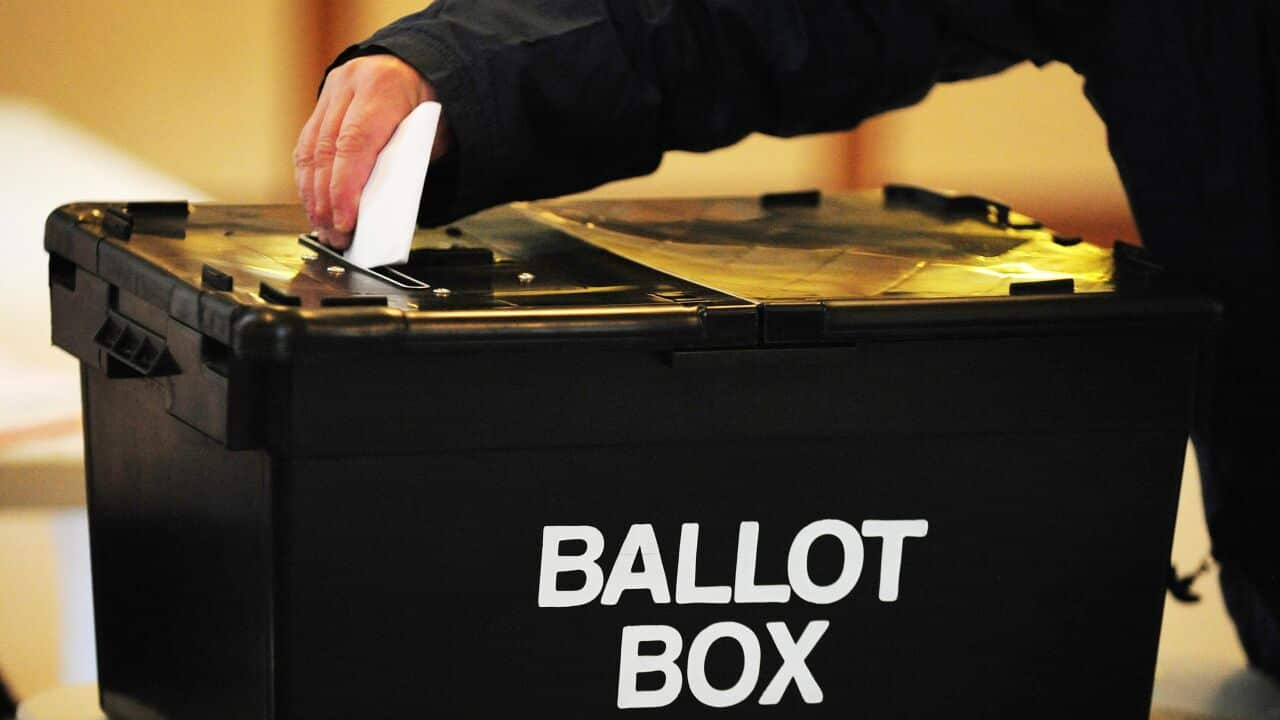Highlights
- Voters are given two ballot papers: green for the House of Representatives and white for the Senate.
- Australian citizens aged 18 years and over on the electoral roll vote at polling stations on election day or mail.
- The counting of first preference votes takes place first and if no one candidate secures an absolute 50 % majority of primary votes - the candidate with the least number of primary votes is eliminated from the count.
Listen to the audio
LISTEN TO

Halalan 2022: Paano gumagana ang sistema ng preferential voting sa Australia?
SBS Filipino
03:59
On federal election day, voters are given two ballot papers: one for the House of Representatives and one for the Senate.
Evan Ekin-Smyth, from the Australian Electoral Commission, says a voter needs to put the number 1 next to their first-choice candidate and then number every other box on the green House of Representatives ballot paper.
The counting of first preference votes takes place first and if no one candidate secures an absolute majority - 50 per cent plus 1 of the primary votes - the candidate with the least number of primary votes is eliminated from the count.
The second preference votes for the eliminated candidate are then redistributed among the remaining candidates, starting with the number two preference from the original ballot.
This process of elimination based on the preferences continues until one candidate secures an absolute majority.
"The Preferential voting essentially means that your vote can go further. IF your preferred candidate, your number one candidate doesn't end up being one of the top tow candidates, in many systems your vote would be set aside.
In the Australian system it't not, so carefully number every box on the house of Representatives ballot paper the green ballot paper because your votes are counted," Ekin-Smyth said.




